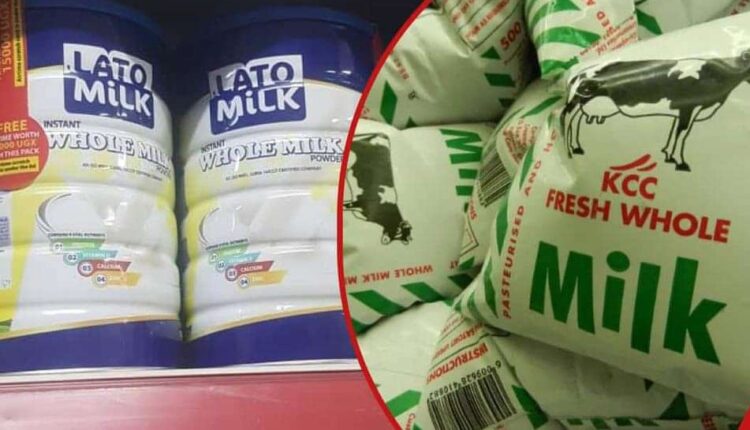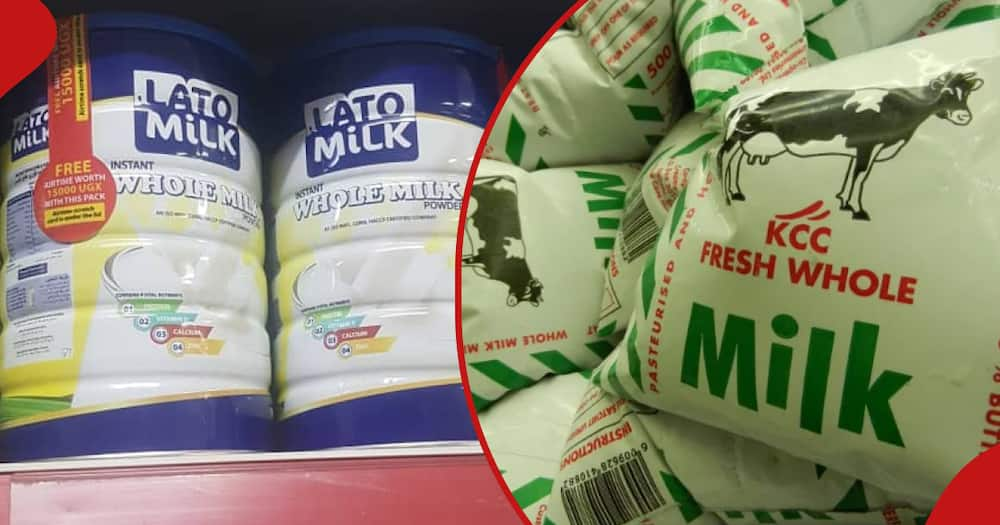
Kenya Is Set To Lose Milk Firms To Neighboring Uganda Processors Over Stiff Competitions
- Uganda’s company known for Lato has submitted an application to the Comesa Competition Commission to acquire Kenyan company.
- The company is seeking approval for the acquisition of a 100% stake in Highland Creamers and Food Limited.
- Acquiring the Kenyan processor will enable the company to circumvent hurdles that in the past led to the denial of Lato brand access to Kenyan market
Elijah Ntongai, a journalist at TUKO.co.ke, leverages more than three years of expertise in financial, business, and technology research, providing profound insights into both Kenyan and global economic trends.
Uganda’s prominent milk processing company, recognised for the Lato brand, is poised to secure a Kenyan milk company in a strategic move aimed at overcoming local challenges and enhancing its market presence.

Uganda’s milk processor behind the Lato brand is set to take over a Kenyan firm.
Source: UGC
Maziwa, a holding company registered in Mauritius, has formally submitted an application to the Comesa Competition Commission, seeking approval for the acquisition of a 100% stake in Highland Creamers and Food Limited.
This Kisii-based company, established in 2015 and has become a key ally for Maziwa in marketing its products in western Kenya.
Value of the acquisition
According to the report by Business Daily, the value of the deal for the acquisition is undisclosed; however, Pearl Dairy aims to use the acquisition of the family-owned processor to establish a manufacturing base in Kenya for quicker market access instead of importing products from Uganda.
Why the Kisii milk processor
Engaged in the collection, processing, packaging, and sale of UHT long-life milk and yogurt in Kenya, the Kisii firm aligns seamlessly with Pearl, whose Lato brand enjoys popularity primarily in western Kenya.
Establishing a processing plant in Kenya will enable Pearl to circumvent supply chain hurdles that have, at times, led to the denial of Lato brand access to the country, even escalating to trade disputes between Nairobi and Kampala.
“The acquisition of the target (Kisii-based firm) will allow for a two-country manufacturing setup that will allow the merging parties to reduce turnaround time to customers and increase the value-addition in both Kenya and Uganda,” Pearl said to the competition commission as reported by Business Daily.
Competition in the dairy industry
The dairy industry in Kenya has become very competitive as new companies emerge to compete with already established companies.
Some of the main companies and their products include:
- Brookside which operates products such as brookside, Ilara, Tuzo, Molo Milk, and Delamere.
- New KCC which produces the KCC Mala, Gold Crown Premium Milk, KCC Fresh Milk, KCC UHT long life milk, and Safariland powder milk.
- Meru Dairy Co-operative Union Ltd which produces Mt Kenya fresh milk, Mt Kenya yoghurt, and Mt Kenya ghee.
- Bahati dairies with milk products that include yoghurts, maziwa lala and mozzarella cheese.
- Milele fresh which produces Milele fresh milk, yoghurt, butter, and cheese.
- Daima Africa which boasts over 30 products including fresh milk, yoghurt, juice drink, chocolates, and smoothies.
- Githunguri Dairy Farmers Cooperative Society Ltd behind the Fresha brand.
- Eldoville dairies which sells milk products under the Elldoville brand.
- Kinangop Dairy Ltd formerly Mkulima Creameries Ltd which sells milk products under the Kinangop brand.
Government sets minimum price for milk
In other news related to milk production, the government allocated KSh 1.5 billion to buy excess milk from the farmers via the New KCC.
Cabinet secretary for Cooperatives and Micro, Small, and Medium-sized Enterprises (MSMEs), Simon Chelugui, announced that his ministry would release KSh 500 million to New KCC collection centres nationwide by the end of December, urging farmers to continue delivering their milk to the centres.
“We seek to protect dairy farming like any other businesses in the country. The minimum price of buying milk is fair and enables farmers to earn good returns despite the high cost of operation,” Chelugui said.
